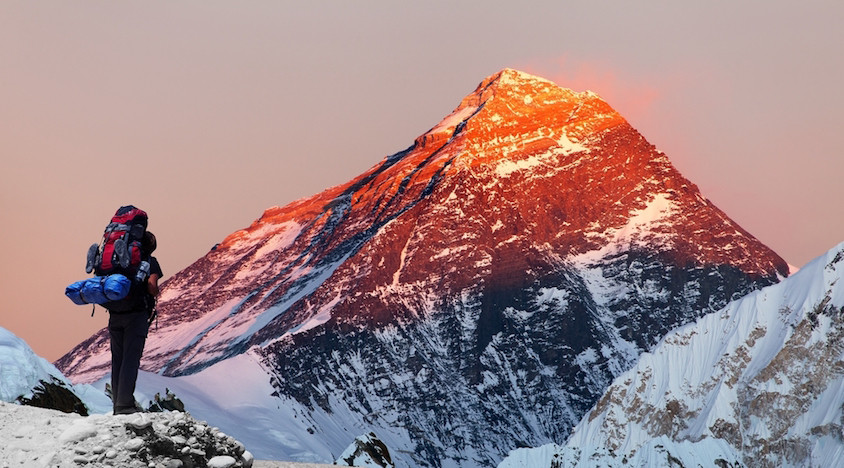Announced this week, the Great Everest Debate intends to discuss the major issues related to the future of climbing Mount Everest.
Rising numbers of visitors combined with ever-present risks and the increasingly commercialised nature of climbing the world’s highest peak has made the topic a perennial favourite in the media. Coverage of the subject tends to rise each year in May, coinciding with the opening of the climbing season.
The release of popular films such as Everest and Sherpa have also brought the dangers of climbing the mountain home for a much wider audience.
To address the issues and provide insight from those who know the subject matter best, Joe Bonington has partnered with the Australian Himalayan Foundation to host a debate at Joe’s Basecamp in Sydney.
“The climbing industry at Mount Everest has generated a huge amount of press in recent years and the directors at the Australian Himalayan Foundation and I realised there was an opportunity here to take the discussion to a higher level,” Joe Bonington told Wild.
The debate, which is scheduled to take place on the evening of the 24th of September, will bring together respected Sherpa leader Pertemba Sherpa, the director of award-winning documentary Sherpa, Jennifer Peedom, Guy Cotter of Adventure Consultants and Andrew Lock (OAM) among others.
Bonington’s father Sir Chris Bonington has also recorded an interview to be played on the night.
“Dad and I agree that people should be able to climb Everest if they want to, but there are many issues regarding safety of Sherpas and Climbers alike involving good business practices that need to be addressed,” Bonington explained.
“People often highlight the high costs that expedition companies charge for a person to summit Everest, which currently ranges from around $30,000 to $100,000, of which a sizeable sum goes to the Nepalese government. But if you consider the costs involved for the operator, you realise that the price is usually justified, especially at the higher end when they employ more Sherpas per climber and are putting more money back into the local economy – what price can you put on your personal safety, after all?”
According to Bonington, people should have more concerns about cut-rate operators and the Nepalese government putting some of the peak fees back into the Khumbu rather than worry about how expensive some of them are.
The purpose of the debate, ultimately, is to advance the education of the public and potential visitors to Nepal.
“There are four groups of people who can have real influence in what’s happening on Everest,” said Bonington. “The Nepalese government, the operators, the Sherpas and the people who wish to climb it. It’s a double edged sword up there, the people most at risk without a shadow of a doubt are the Sherpas but without the climb or if it becomes to expensive nobody has any jobs and families don’t eat, we need to find balance and we need to give the Sherpas the respect they deserve for the job they do… but not price Everest out of reach.
“We also need to ensure that climbers are properly ready for what they are undertaking. Inexperienced climbers risk everyone’s lives.”
For more information and to book a place at the Great Everest Debate, see the Joe’s Basecamp website.


